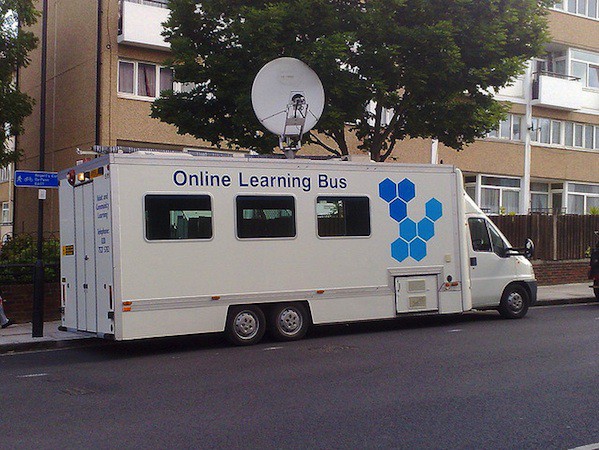Online Learning and Teaching Writing

For whatever reason, discussions of online education are in the air. Cathy Davidson frequently writes about the challenges facing our education system on this blog, and when a consortium of top universities combined to create an online course initiative, it seemed that online education had grown past its infancy as was ready for mainstream acceptance.
That initiative, Coursera, has clearly excited the public, as it now boasts over one million students taking free online courses. Yet it has not been without its critics. Recently, Adam F. Falk has argued that solutions like Coursera offer students an incomplete education because they lack the one-on-one attention that students can get from teachers. In the case of that old standby, the essay, Falk criticizes the site's peer-grading model, writing, "as if averaging letter grades assigned by five random peers were the educational equivalent of a highly trained professor providing thoughtful evaluation and detailed response."
Yet, there are reasons to doubt the educational value of the essay-writing most students do—whether graded by a "highly trained professor" or "random peers." Thomas Kent has argued that because communication is always situated in particular contexts, it isn't possible for the typical in-class essay to teach a student what she needs to know about real-world writing using this method.
Alex Reid makes a similar point when discussing critical thinking, arguing that "critical thinking" is a term without a lot of value, for the "thinking" required by different disciplines and professions is "situated and [is] not easily practiced outside of" the context of those fields. Like Kent, Reid argues that writing instruction faces a similar problem, as the writing skills needed in different contexts outside the classroom are difficult to teach when they are divorced from that context.
Which brings us back to Coursera and online learning. While I agree with Falk that having real teachers interact with students is valuable, when teaching writing, neither an audience of teachers nor an audience of peers can be the solution to good writing. Rather, the solution is to teach students writing that is situated in real (or simulated) contexts with real audiences and feedback. The future of projects like Coursera, if they are to be successful educational alternatives to the traditional college classroom, is to harness the collective intelligence of the Web to connect students with these audiences. What the Internet has proven with resounding success is that it can connect writers with real audiences. Any approach at online education (or offline education, for that matter) that ignores this feature of the Web adds nothing significant to the process.
Banner image credit: STML http://www.flickr.com/photos/stml/3548597236/